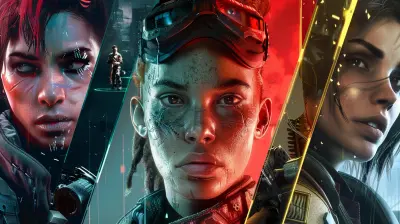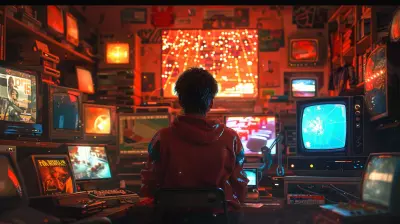Emotional Resonance: Voice Actor Performances That Brought Us to Tears
3 October 2025
Let’s be honest—video games have come a long way from pixelated sprites jumping across blocky platforms. Nowadays, they’re full-blown emotional rollercoasters. And a huge part of that magic? Voice acting.
Yeah, graphics and gameplay matter, but when a voice actor delivers a line that hits you right in the feels? That’s pure storytelling gold. You’ve probably had a few moments in games where a character says something and suddenly, boom—lump in your throat, eyes getting misty. It's powerful, intimate, and unforgettable.
In this article, we’re diving deep into those powerful voice performances that didn’t just narrate a story—they lived it. Buckle up, because we’re about to relive some of gaming’s most emotionally charged moments. And don't worry, we'll try to avoid full-on spoilers (but maybe not all of them—fair warning!).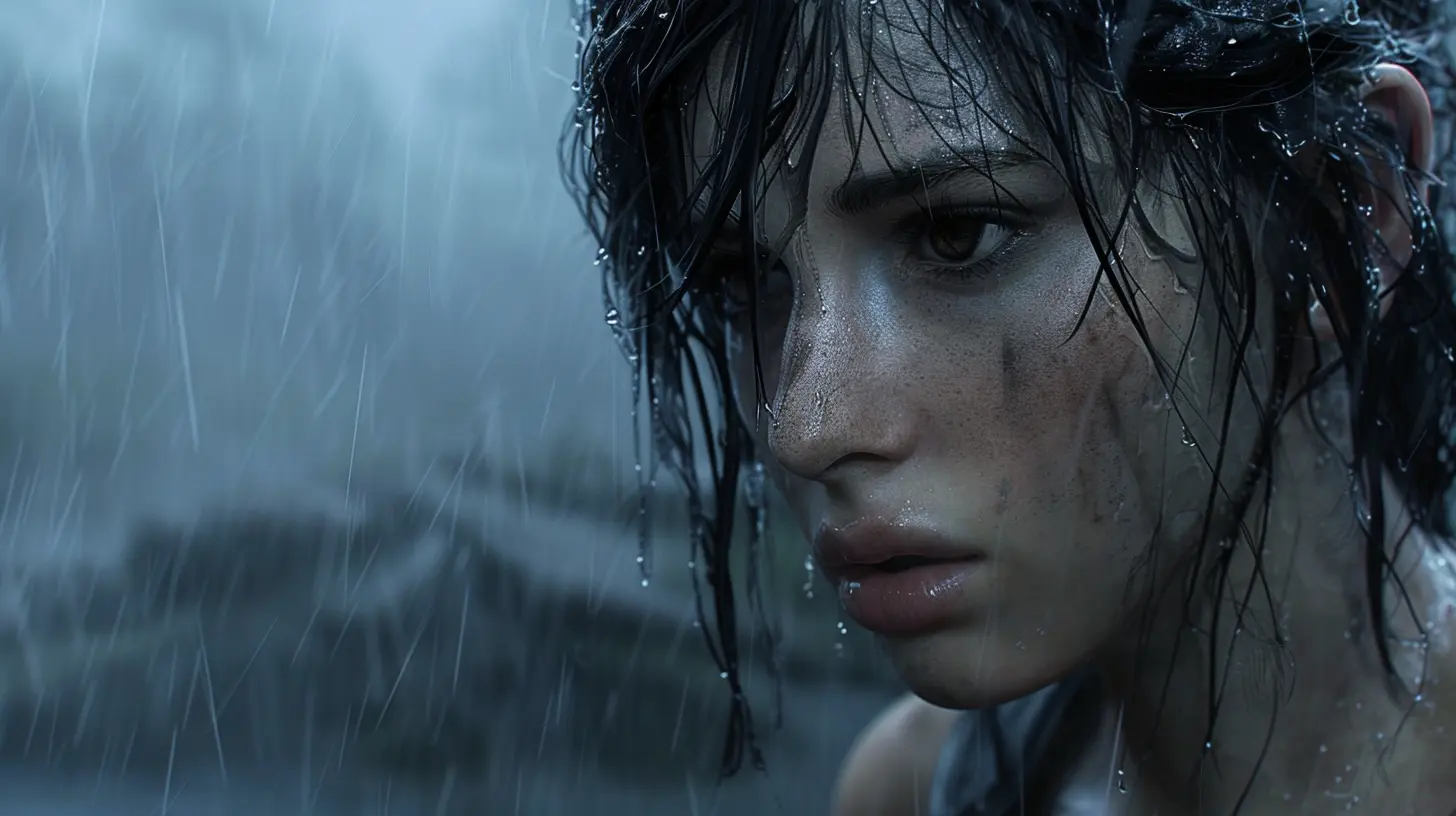
Why Voice Acting Matters More Than Ever
Voice acting in video games isn’t just about reading lines anymore. It’s about crafting a performance that breathes life into a pixelated character. Think of it like an actor on stage—except the stage is digital, and they’re wearing a motion-capture suit. Kinda like theater meets tech.Good voice acting elevates a game. Great voice acting? It can rip your heart out. It gives characters depth, personality, and humanity. It turns NPCs into old friends (or tragic enemies). We connect, we cry, we scream at our screens—all because someone behind a mic poured their heart into their role.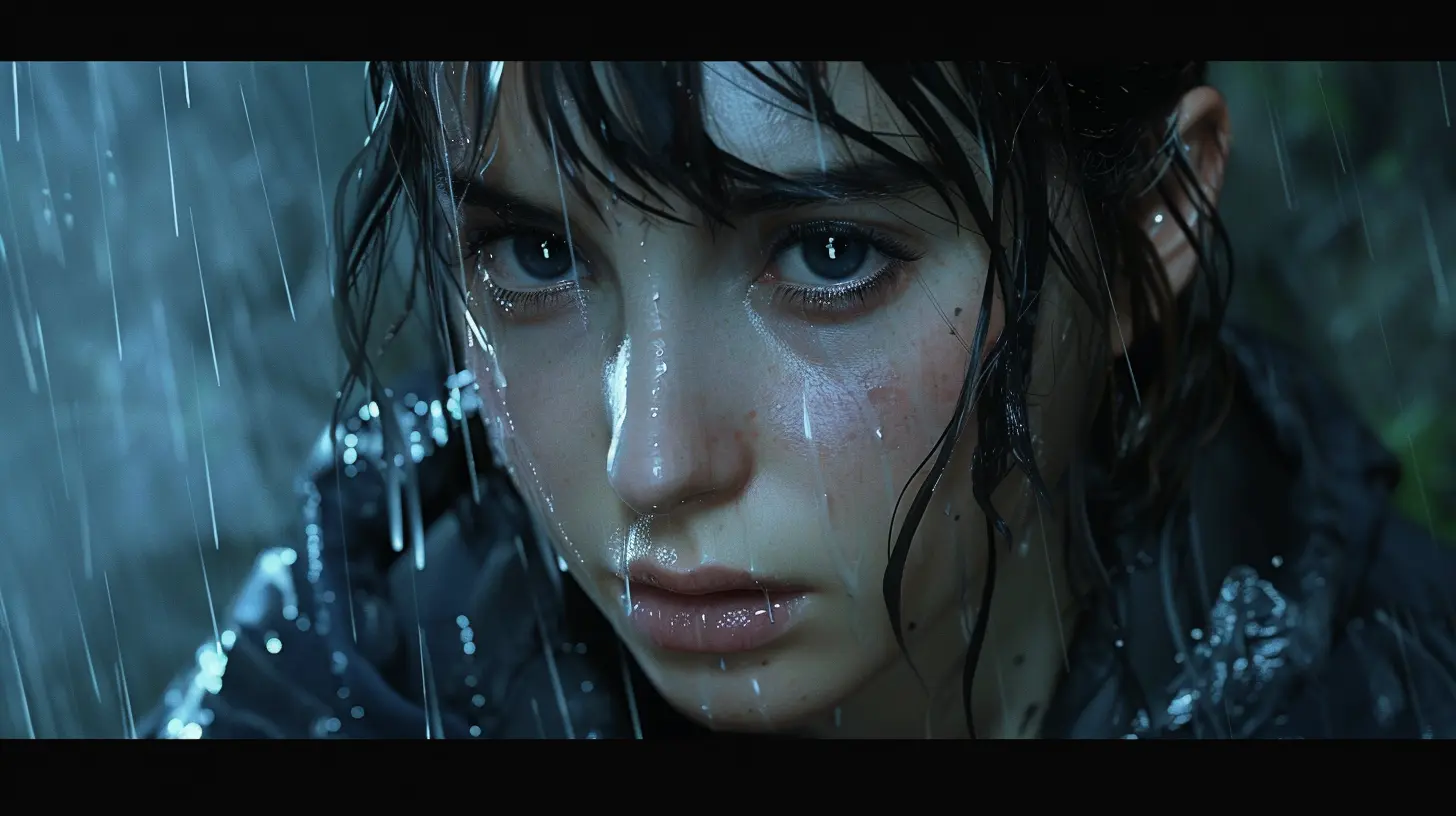
The Power of Performance: When Voice Acting Hits Hard
Let’s look at some standout voice actor performances that didn’t just tell a story—they became the story.1. Ashley Johnson as Ellie in The Last of Us Series
Let’s start with an obvious one. Ashley Johnson’s portrayal of Ellie in both The Last of Us and the sequel is nothing short of breathtaking. From her witty comebacks to her gut-wrenching sobs, Johnson doesn’t just play Ellie—she is Ellie. There’s a moment in the first game (you know the one) where Ellie pleads with Joel not to leave her. Yeah. That one. You felt that down to your soul, didn’t you?She brings layers of vulnerability, rage, and resilience. Watching Ellie grow, suffer, and fight—while hearing Johnson’s voice crack with emotion—makes the experience borderline cinematic. These aren’t just games. They’re emotional giants.
2. Christopher Judge as Kratos in God of War (2018)
“Boy.”Simple, right? But it’s the way Christopher Judge says it. He took a character who was once little more than an angry demi-god and turned him into a grieving, guilt-ridden father who’s trying to connect with his son.
Judge’s deep, commanding voice mixes gravitas with subtlety. He doesn’t just bark orders—he whispers pain, glances regret, and occasionally lets the cracks show. In the more tender scenes between Kratos and Atreus, Judge absolutely nails that sense of a man struggling to find the right words. That awkward vulnerability? It’s intensely human.
3. Briana White as Aerith in Final Fantasy VII Remake
Few characters have as much emotional baggage as Aerith Gainsborough. In the original Final Fantasy VII, she was tragic. In the remake? She’s radiant, playful, and so heartbreakingly alive—thanks to the incredible performance by Briana White.White brings a lightness to Aerith that makes her fate hit even harder. She’s not just a healer; she’s the heart of the group. Her laughter, her sass, her quiet strength—it’s all delivered with such sincerity that you can’t help but fall in love with her all over again. And when things get heavy? You feel it. Every syllable.
4. Roger Clark as Arthur Morgan in Red Dead Redemption 2
Arthur Morgan might just be one of the most complex protagonists in gaming history. A ruthless outlaw with a moral compass trying desperately to point north, his journey is unforgettable. And it wouldn’t be half as impactful without Roger Clark’s masterful voice work.Clark gives Arthur a gruff, world-weary tone—a man exhausted by life but not quite ready to let go. The final chapters of the game (no spoilers!) are packed with dialogues so raw, so drenched in emotion, you'll be stunned that it came from a video game. It's storytelling on par with the best of film and TV.
When Arthur reflects on his past mistakes or shows a rare moment of kindness, Clark's voice delivers those lines with a perfect mix of regret and hope. You don’t just hear Arthur—you believe him.
5. Melina Juergens as Senua in Hellblade: Senua’s Sacrifice
Now here’s a wild story: Melina Juergens wasn’t even a professional voice actor. She was a video editor who ended up stepping into the role of Senua while Ninja Theory looked for a lead actor. Then… she became Senua.Juergens’ performance is haunting, vulnerable, and absolutely mesmerizing. Senua’s journey through psychosis and grief is terrifying and beautiful, and Juergens brings such honesty to the role that you feel every whisper, every scream, every shattered sob.
This performance is unlike anything else in gaming. It’s raw. It’s intense. And it gets under your skin in the best—and worst—ways possible.
6. Yuri Lowenthal as Peter Parker in Marvel’s Spider-Man (2018 & 2023)
Spider-Man isn’t just quips and punches. Peter Parker's life is full of losses, sacrifices, and painful choices. Yuri Lowenthal captures this duality perfectly. Yeah, he nails the corny one-liners, but when the serious moments hit? Oh boy.There’s a scene involving a hospital room and a difficult decision that’s acted out so perfectly, you’d swear it was pulled straight from a live-action drama. Lowenthal’s voice cracks, hesitates, and then breaks—and suddenly you're ugly crying into your controller.
It’s proof that superheroes can cry—and make us cry too.
7. Courtnee Draper and Troy Baker in BioShock Infinite
BioShock Infinite is a mind-bender, but at its core, it’s really the story of two broken people trying to save each other. Courtnee Draper (Elizabeth) and Troy Baker (Booker) have unbelievable chemistry. Their back-and-forth banter makes the quiet moments sing—and the tragic ones hurt like hell.Draper’s sweet yet steady voice contrasts beautifully with Baker’s gruff, haunted delivery. It’s a dance of innocence and experience, curiosity and cynicism. And when certain truths are revealed near the end of the game? Let’s just say, tissues recommended.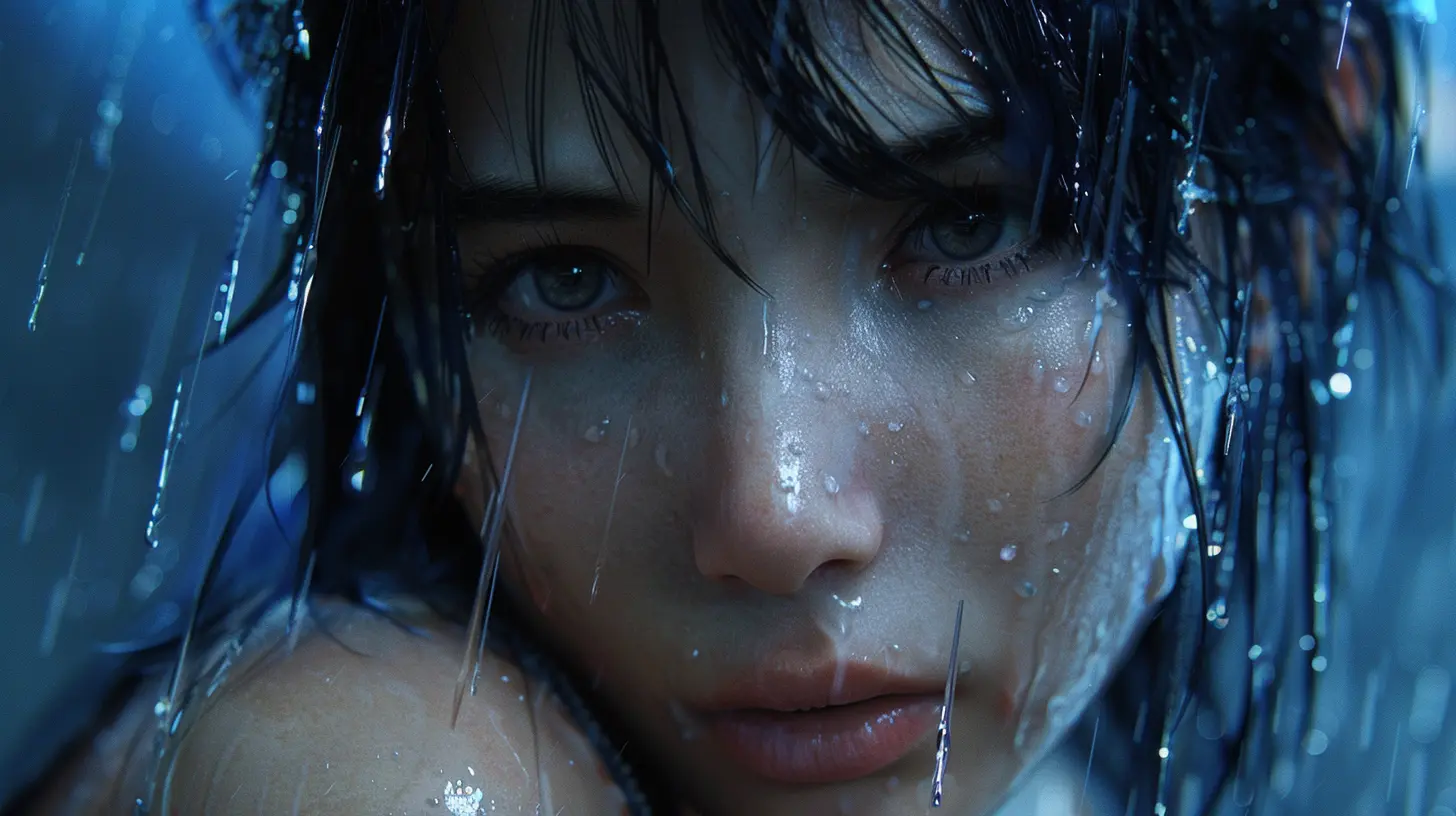
Why We Cry: The Psychology of Voice in Games
So, what is it about these performances that move us to tears?Voice is the ultimate emotional connector. When someone’s voice shakes, we feel it. When they whisper something meaningful—or scream in agony—it taps into our empathy. Video games let us become the character, and when their voice falters, it’s like our own heart is breaking.
It's the same reason a sad song can ruin your day (in a good way). Our brains are wired to respond emotionally to tone, inflection, and cadence. Voice actors use these tools like instruments, creating music that plays directly on our heartstrings.
Honorable Mentions: More Voices We’ll Never Forget
These performances deserve a shoutout too:- Doug Cockle as Geralt of Rivia (The Witcher series): Stoic yet soulful.
- Cherami Leigh as Makoto Niijima (Persona 5): Quiet strength and fierce resolve.
- Camilla Luddington as Lara Croft (Tomb Raider Reboot): Vulnerability meets badassery.
- Ray Chase as Noctis Lucis Caelum (Final Fantasy XV): The king who didn’t want to be king.
- Sarah Elmaleh as Alex Chen (Life is Strange: True Colors): Pure empathy in a voice.
The Future of Voice Acting in Games
With technology like performance capture and AI-driven dialogue systems advancing fast, voice acting in games is only getting better. But here’s the thing—no matter how slick the tech gets, nothing will ever beat the human element: breathing life into a character through raw, emotional voice work.The best performances are the ones that remind us why we play games in the first place—not just for fun, but for connection. For stories. For the kinds of moments that leave us sitting in silence long after the credits roll.
Final Thoughts
Voice acting isn’t just part of the game—it is the game. It's the secret sauce, the heartbeat, the whisper in the dark that makes a moment unforgettable. Whether it's a farewell, a revelation, or a quiet "thank you" that packs more punch than any action scene—voice actors make those moments linger long after we put the controller down.So next time you tear up during a game (and you will), don’t be embarrassed. That’s the power of a great voice performance. That’s emotional resonance.
It’s real. It’s raw. And it stays with you.
all images in this post were generated using AI tools
Category:
Voice Acting In GamesAuthor:

Tayla Warner
Discussion
rate this article
1 comments
Honor Cole
This article beautifully highlights the profound impact voice acting can have on gaming narratives. The performances mentioned not only enhance the storytelling but also create lasting emotional connections that resonate with players long after the game ends.
October 5, 2025 at 5:05 AM

Tayla Warner
Thank you for your insightful comment! I completely agree—voice acting truly elevates gaming narratives and leaves a lasting emotional impact on players.
